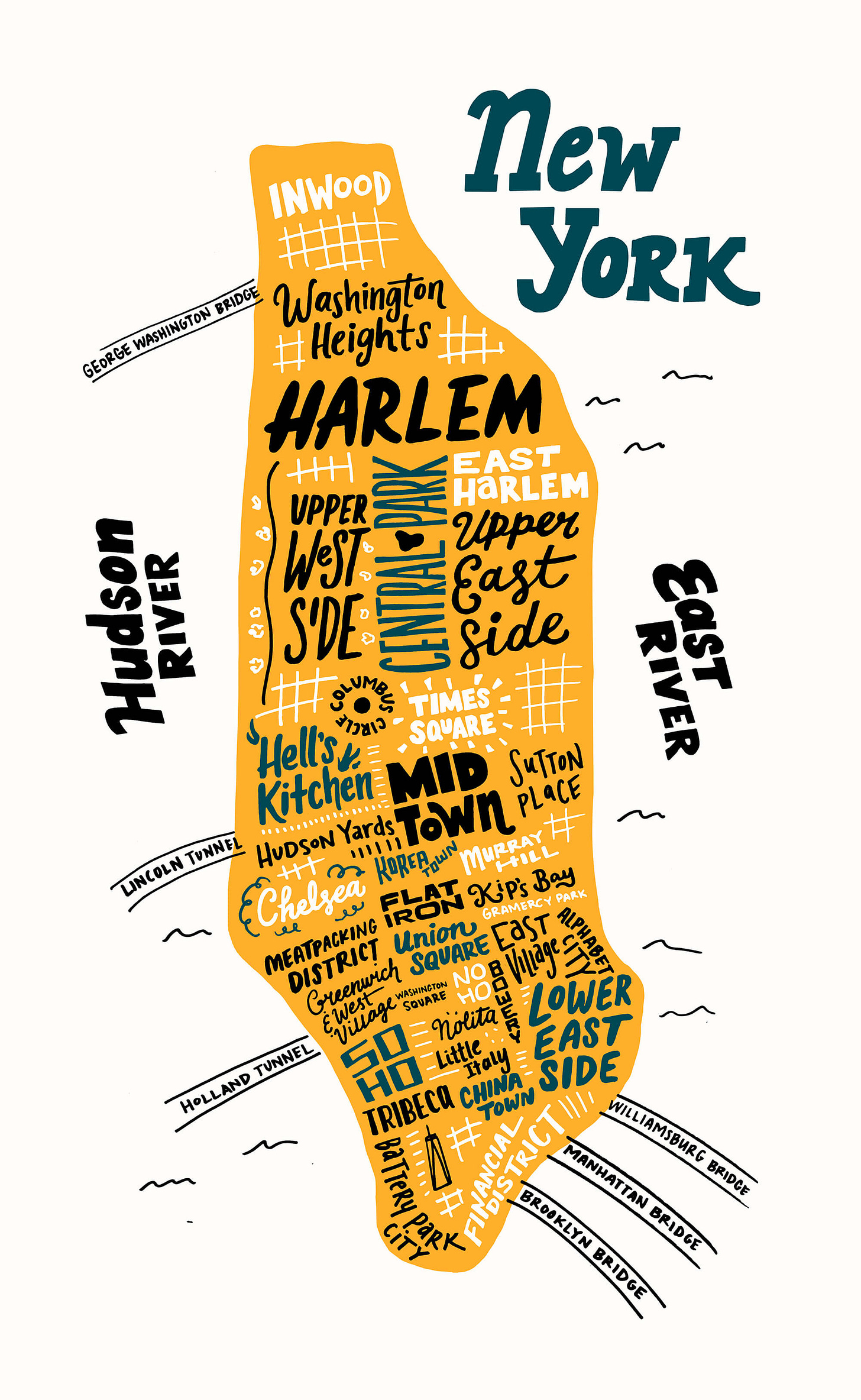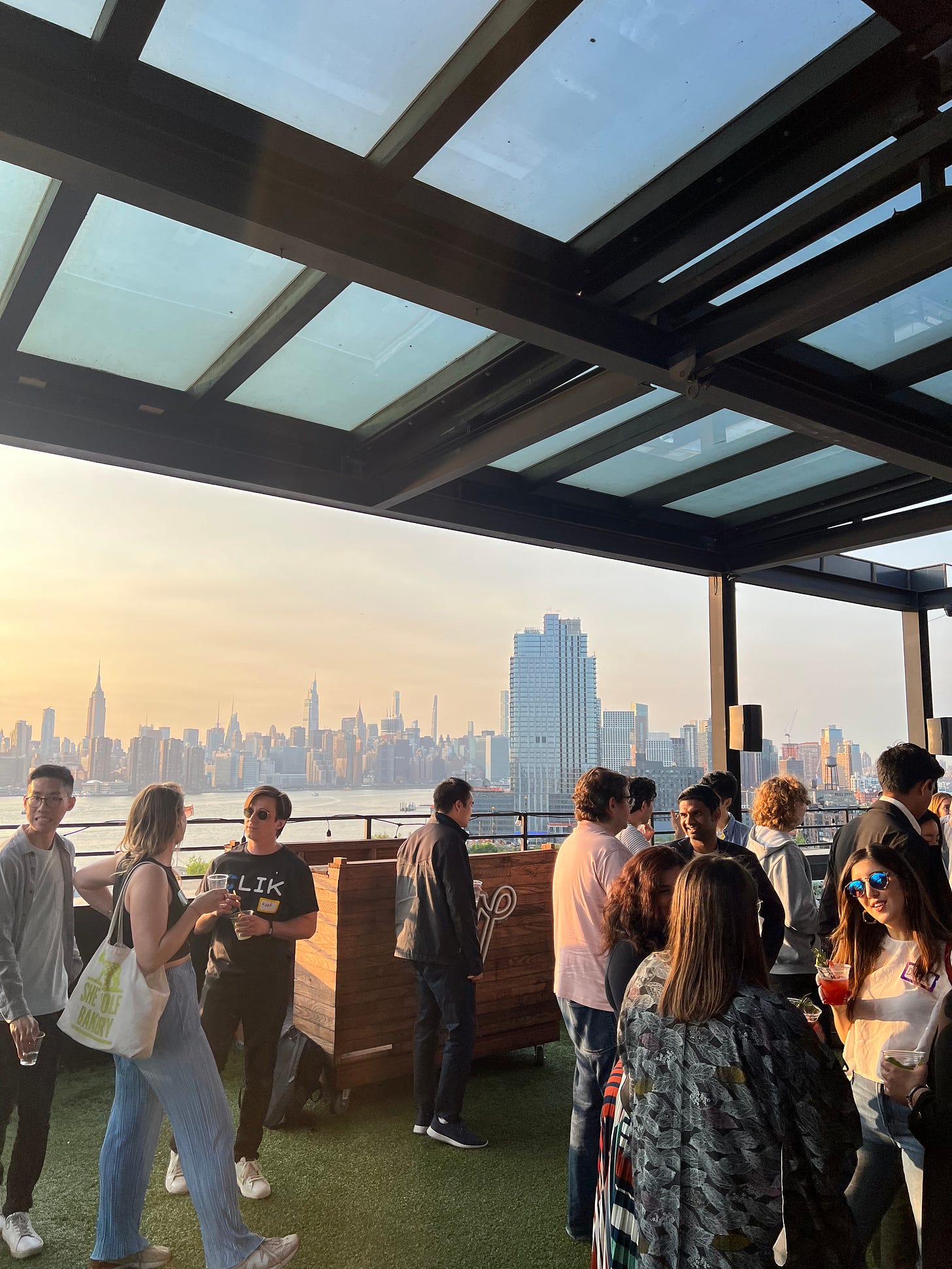Exposure Maxxing
Restarting my writing journey, this blog focuses on making yourself prone to get more (& better) opportunities. While based on my life in NYC, the same is applicable to other cities as well.
Introduction
Hello, I'm Shyam Arvadia, an NYU graduate who's lived in NYC for the past 2 years. Here, I share how to create and seize opportunities in an era dominated by AI and technological transformation.
Okay, I will add a bit of story here about myself. It was already clear in my mind when coming to the USA that I would be either living in SF or NYC. I ended up choosing the latter and don’t regret it at all. Now coming from an entrepreneurial family, I naturally wanted to go into that field. However, learning about Venture Capital in depth from one of my professors made me consider how I could choose a different path than most people and go into VC first and then have a shot at entrepreneurship.
The next thing to do was ask my professor to let me work for him. But unfortunately, this ain’t how VC works. You gotta have some VC experience to get into VC (damn how do I get that as an engineer who just moved from India). Luckily, the professor was nice. He suggested the best way to do this is to convince any accelerator to let me work for them (even if it means for free).
That’s what I just did. There was an accelerator/VC in Gramercy Park who was taking in a batch of AI founders. Naturally, they would need analysts who have some expertise in AI. This is where upskilling yourself comes into play (more about this below). So, I have been coding AI since 2018. All I had to do was cold email the GP that I was willing to help them with the due diligence (tech side) of the incoming batch for free in return for them teaching me about term sheets, due diligence (financial side), investment memos, and LP coordination.
Given my engineering background, I wanted to learn more about deep tech investing. Now equipped with some background in VC and good contacts, I went on to work for another firm that was not exactly VC but more like a bridge between government-funded research and the VC world. This was the perfect opportunity for me to get in touch with researchers (funded with millions of dollars from the govt) researching the next big thing in fields like biotech, defense, agrotech, energy, humanoids, etc. Also, this allowed me access to all this deal flow even before the VCs themselves. So, I had a solid value to offer to any investor I would meet.
Key Takeaway: Building relevant skills and networks can open doors to unexpected opportunities.
Now being in the VC world means I get to attend a lot of mixers, events, and happy hours hosted by various founders, firms, or VCs themselves. This gave me the ability to have access to opportunities well beyond what I imagined. Remember I was still a grad student who just came here a year ago.
Then while analyzing some of the ventures, I came across the field of synthetic biology. The fact that you could program living things just like you program computers fascinated me. Again, I did not know the field. But luckily, I was in NYC where there were a lot of biotech labs and firms (the importance of being in the center of everything). So at one event, I met a founder of an open-access lab (named Genspace) who did 2-3 week practical lab experiments for anyone who wanted to learn that. And I did just that (blew my mind what we are capable of). Then I met a founder in biotech (Manny at Edge Foods) whose company had recently raised money. I offered to help him navigate generative AI in return for him letting me shadow the R&D team in the lab. This company happened to be funded by Indi Bio NYC (a fund by SOSV, an OG deep tech investor). Thus, now I built some connections there too.
Recently I was on a business trip to China for my family business. I had some days free in Shenzhen. What would have been the best way to explore the startup ecosystem here? Visiting some labs and accelerators was what I wanted to do. There was one accelerator named HAX with an office space in Shenzhen. Guess who runs that? None other than SOSV haha. So I asked people at Indibio NYC to facilitate a visit for me at HAX Shenzhen where I met Jimmy who showed me not just the lab but also the great electronics market of Huaqiangbei. This is what I mean by how your network gives you access to opportunities you would never have otherwise.
Now some people will say, "But I don’t wanna work in VC to build that.” Well, you are not out of luck. I will provide you with how you could do just that without it.
That is what this blog is ultimately about.
But First, The AI wave & why it matters
Whenever there is radical new technological change (ChatGPT, you can add some here, industrial revolution, printing press, OTT, online commerce, quick commerce in India, Uber, Airbnb, etc., some of these would come under the internet era). There is a rebalancing of the value chain etc. Now we are seeing a huge disruption looming in the near future led by AI which is poised to penetrate multiple sectors and is gonna change a lot of things.
Whether you are looking for a job, looking to start a startup, or just wanting to future-proof yourself or looking to meet people in the field, you gotta pay attention to AI.
"AI will affect almost 40 percent of jobs around the world, replacing some and complementing others." IMF BlogIn a world where AI reshapes our work and life, understanding this disruption is crucial. While it presents challenges, it also unlocks a myriad of opportunities for those prepared to adapt and thrive.
How to Stay on Top of the Latest AI Happenings & Others
Here is what I use to stay on top of the latest happenings in AI:
Rowan Cheung – Rundown AI Newsletter (general news + tools + open positions)
Chief AI Officer – Newsletter + Twitter (latest fundraises in AI)
Noahpinion – An economics-focused blog, that also includes a lot of recent developments and weekly, publishes “Few interesting things to start your week”
Not Boring – My favorite Substack newsletter, Packy McCormick is a writer turned VC, writes about upcoming things, and his new investments, and also writes a “weekly Dose of Optimism” which is great for getting up to speed with the latest developments.
Mastering New Skills in the AI Era
Your professional value is tied to the skills you offer. As AI advances, adaptability and a broad skill set become indispensable. Embrace being a generalist with the ability to dive deep, allowing you to pivot as new opportunities emerge.
While AI might not directly compete for your work just yet, someone using the current AI tools is surely gonna have an upper hand if you just ignore it.
AI Literacy: I believe everyone should be aware of all the available AI tools and models at their disposal. The best way is to set some time apart each week to play around with lots of stuff that’s being shipped currently. You never know what you could use in your daily life.
Integration Skills: Learn to integrate AI tools into your existing processes, which may include using AI for tasks (e.g., data analysis, customer service automation, personalized communication tools, or just writing good emails).
Ethical and Responsible Use: Develop an awareness of the ethical implications and best practices for using AI, ensuring that its application improves outcomes without compromising privacy or accuracy. While not a lot of people focus on this, this is a pretty underrated skill. Most big corporations have to make sure of the implications of whatever tools or services they use.
AI Development Skills: Acquire technical skills in AI development, including understanding and implementing models like RAG (Retrieval-Augmented Generation) for information retrieval, coding and fine-tuning large language models (LLMs), and integrating AI solutions into business systems.
Since I am an AI dev myself, I will hook you up with something that could help you if you wanna dive deep into the tech.
Ilya Sutskever gave John Carmack this reading list of approx 30 research papers and said, ‘If you learn all of these, you’ll know 90% of what matters today.’
Here it is: Research Papers Reading List
This list is a good start and is not at all exhaustive. But a quick internet search will let you know of the latest developments in the field. Even some HackerRank forums could be a good resource.
Better Location = Better Access to……
Okay, that was a lot of AI haha. Now back to our article. Location is pivotal in accessing opportunities. Urban centers like San Francisco, New York City, and Los Angeles are ecosystems ripe with innovation. Being in these hubs means being where significant opportunities are most likely to occur.

Digging deep. In the case of NYC, most of the events happen in these boroughs:
West Village: Known for its bohemian past, this area is now more mainstream but retains a strong sense of community with its eclectic shops and beautiful brownstones. It's a great place for casual networking in a relaxed environment.
Chelsea: A blend of posh sophistication and artistic flair, Chelsea is perfect for exploring new ideas and attending experimental art galleries. Proximity to Midtown makes it convenient for young professionals.
Gramercy Park: Quiet, tree-lined streets and a community-oriented, small-town feel. Ideal for families and those seeking a peaceful yet connected neighborhood.
Soho: Luxurious and artistic, with a mix of high-end boutiques and historic cast-iron buildings. Great for people-watching.
FiDi (Financial District): Busy during the day with professionals and tourists, but quiet at night. Good for those working in finance and looking for a more subdued nightlife.
Midtown: The heart of Manhattan with iconic landmarks and endless attractions. Perfect for those who thrive in a bustling environment and want constant access to entertainment and networking opportunities.
LES (Lower East Side): A mix of gritty past and modern high-rises, with a vibrant nightlife and diverse cuisine. Great for young professionals looking for a lively and welcoming atmosphere.
Tribeca: Chic and trendy with a relaxed vibe, home to many celebrities and refined nightlife. Ideal for those who enjoy a sophisticated yet down-to-earth atmosphere.
A very practical idea would be to live in these areas or live somewhere that has very good MTA subway connectivity to these. I lived in FiDi because it had access to most train lines, so basically within 20 minutes I could reach almost anywhere in the city.
Unlocking Doors: Events and Networking
But moving to a place isn’t all. How do you put yourself out there? How do you find opportunities? How do you find professional and personal connections?
Yesterday I went to an open play pickleball organized by Liv (link below) and I met amazing people who recently graduated from Yale, Michigan, and Harvard, and people who work in tech & VC. It was so fun to meet fellow like-minded hustlers and playing pickleball with some seltzers is a fun activity ngl.
New York City is a networking powerhouse. Engaging with this vibrant community can significantly expand your professional & personal network. I will drop some resources to find events of your liking:
Katia Ameri: Curates extensive lists for NY Tech Week. | NY Techweek Calendar
Andrew Yeung: Host amazing events for VCs, tech folks and founders (the summer ones are the best)
Jessica Yorkseed: Delivers weekly event round-ups. | Signup to her newsletter
Zehra Naqvi: Hosts and shares noteworthy networking events | The Z List
Jamie Russo: Shares a weekly list of professional and social events/parties. | Substack Link
Liv Schrieber @ Hot & Social: Organizes events for young people. You arrive solo but leave with a lot of friends and connections. | Hot & Social
The same kinds of events are also around in other cities. You could probably use Twitter or Lu.ma to find these.
Networking Etiquettes
The content below is based on Andrew Yeung’s blog.
Networking requires a blend of respect, curiosity, and strategic positioning. Don’t be that weird creepy person who becomes someone’s story. Here’s how to make the most of every event:
Etiquette and Engagement: Prioritize respect and inclusion. Being genuinely interested in others rather than focusing solely on oneself enhances your reputation and builds meaningful connections.
Strategic Positioning: At events, position yourself in high-traffic areas like near the beverage station or in line. These spots increase the chances of engaging in conversations.
The Rule of Three: At each event, aim to meet three new people, learn three things from each, and share three things about yourself. This approach ensures you leave with valuable connections and insights.
The Art of Being Present
Volunteering at events can transform your networking experience. It provides behind-the-scenes access and establishes you as a community resource, enhancing your visibility and connections.
So, once I was walking around the Lower East Side and saw an event by Andrew (Since I go to many of his events, I knew it would have a good crowd of hustlers), I decided to try a new thing. I had nothing to do and they were looking for some volunteers. Spontaneous I decided to join it.
And I got to meet a VP of Google who was impressed when he heard my story. And, he has helped a couple of my friends get a job in the current market. Seems like a good ROI to me.
Adding Value: Your Secret Weapon
In every interaction, consider how you can add value. Whether through unique insights, helpful introductions, or genuine enthusiasm, your contributions can make you memorable and open doors to new opportunities.
Bonus: Twitter & Saturday APP
Twitter is the best place to be involved in whatever is happening in the world. It's like the digital town square. The people I mentioned above are also pretty active on Twitter. I have attached the links to their profiles wherever relevant above.
Cliff Lerner is the guy who has built an app named Saturday that focuses on who is doing what and what is going on in the city. People can join groups, find like-minded people nearby, or host full-blown events there. I like the AI personality match tool that they have built. So one can know who to look out for at various events. | Check it out here
Conclusion
Creating opportunities is an active process. By continuously enhancing your skills, positioning yourself strategically, engaging deeply in your professional community, and adding value, you capitalize on the opportunities that technological advancements and a great city bring.
If you loved reading this, please subscribe and share it with your friends.
Happy Exploring!




